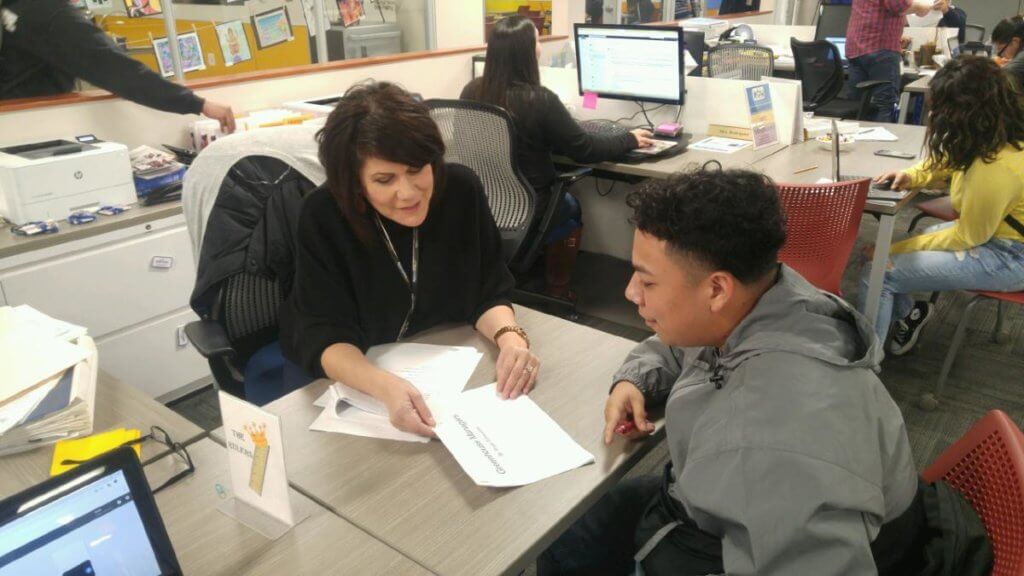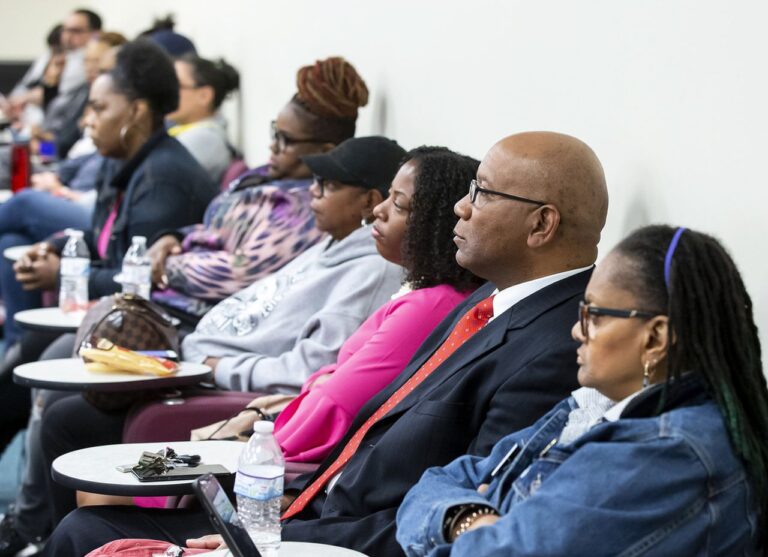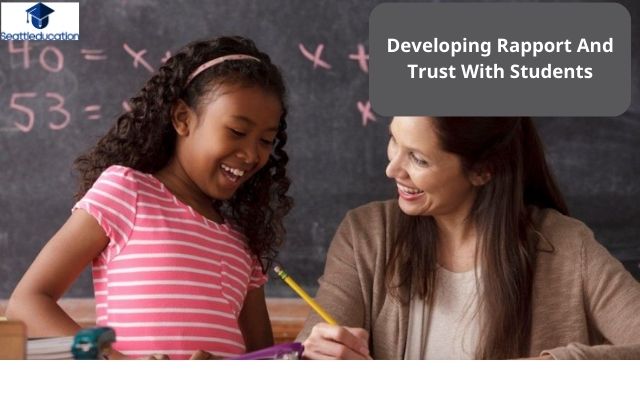School Counselor Preparation Program: Everything Is Here!
As a school counselor, I am aware of the value of being well prepared for the position. To effectively assist and guide kids, it is important to have a thorough awareness of every facet of counseling.
This article will explore school counselor preparation program, examining the various requirements needed for certification, as well as the skills necessary for successful counseling. It will also discuss different counseling theories and the role ethics and law plays in counseling, as well as group dynamics and how to assist students with personal, social, and academic issues.
Additionally, this article will look at ways technology can be incorporated into counseling, along with developing professionalism and leadership in the field.
Overview Of School Counselor Preparation Programs
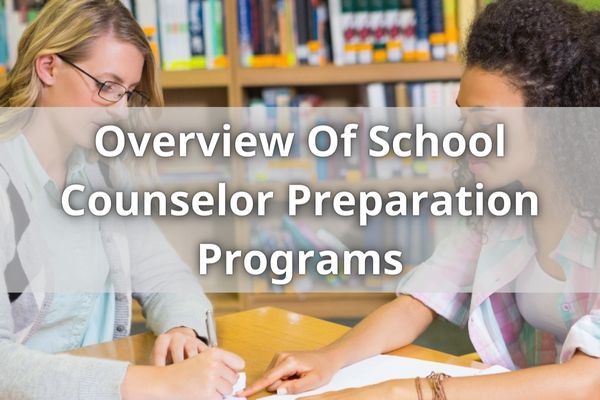
If you’re looking to get into the field of education, this overview will give you a great introduction! School counselors are certified professionals who help students navigate their academic and social lives. Becoming a school counselor typically requires completing an approved school counseling program at an accredited university or college that prepares candidates for state certification as a school counselor.
It’s important to understand the requirements for certification, such as coursework, supervised practice, and passing any applicable examinations. These programs provide comprehensive instruction in professional school counseling principles and practices, including topics such as:
- educational psychology
- human development and learning theory
- assessment strategies
- consultation techniques
- legal/ethical issues in counseling
- group dynamics and leadership skills
Depending on the program you choose, courses may also include career development theory as well as multicultural aspects of counseling.
School counselor preparation programs usually require completion of 60-semester hours of graduate credit including 600-hours of actual clinical experience prior to graduation. Completion of all requirements leads to conferral of a master’s degree in school counseling or its equivalent along with state licensure or certification where required by law.
To keep up with current trends in the field, many universities offer specializations within their school counseling programs that focus on areas like trauma-informed care or restorative practices. Moving forward, it’s important to understand the requirements for certification – from coursework to supervised practice – so you can be prepared when applying for state licensure or certification as a school counselor.
Understanding The Requirements For School Counselor Certification
You need to be aware of the requirements for certification, so you can fulfill them and become certified. A school counselor preparation program is essential for certification in counseling. If a program’s accredited, it’ll provide the necessary coursework that meets licensure standards.
Completion of such a program along with any additional requirements set by the particular state or jurisdiction are key components of becoming certified as a school counselor.
Studying counseling topics such as assessment, development, research, and intervention are all important aspects of completing a school counselor preparation program. The knowledge gained from these courses will help you develop the skills needed for effective counseling practice with children and adolescents.
Furthermore, understanding relevant topics such as legal and ethical issues in counseling also prepares you for working in different school settings.
By studying the required coursework within an accredited school counselor preparation program, you gain experience that can help you become successful when taking licensing exams and applying for jobs after graduation.
Moreover, understanding your state’s specific guidelines related to licensure enables you to create an action plan that will get you closer to becoming certified as a professional school counselor. As such, researching licensure requirements thoroughly should be one of your first steps on this journey.
Developing The Skills Necessary For Effective Counseling
Once certified, developing the skills needed to provide effective counseling is essential for success in the field. School counselors must understand the complexities of comprehensive school counseling program and be able to apply appropriate strategies based on each individual student’s needs. Therefore, a strong school counselor preparation program will focus on building these skills:
- Comprehensive knowledge of group counseling techniques
- Ability to work with diverse populations
- Understanding of different theories of counseling
In addition to having the necessary understanding and knowledge, it’s important that those attending school counselor preparation programs have had some real-world experience as well. This could include internships or other supervised experiences working with clients in a clinical setting.
A Master’s degree in Counseling can also help demonstrate an individual’s commitment and expertise in this area. With all these components combined, individuals participating in a school counselor preparation program can hone their skills to become successful counselors who are dedicated to helping students reach their full potential.
With this foundation established, they’re then ready to explore different counseling theories and practices that best align with their own personal strengths and values, which will ultimately enhance their effectiveness as a professional school counselor.
Exploring Different Counseling Theories
Discover how exploring different counseling theories can help you become an even more effective professional in the field. As a school counselor, it is important to understand the different roles and responsibilities that come with the job as well as understand different tools and techniques for providing effective counseling services. Exploring various counseling theories can help counselors gain a better understanding of their roles and responsibilities as well as evaluate their program performance.
Counselors should be aware of the various theories used in counseling practice including multicultural counseling, cognitive-behavioral therapy, psychodynamic theory, and family systems theory. By understanding the roles associated with each theory, counselors can better assess which approach best fits their program goals and objectives. Furthermore, examining ethical standards related to these approaches helps ensure that all counselors are adhering to appropriate practices when providing services.
Additionally, exploring different theories allows for evaluation of current programs in order to determine any areas for improvement or modification. Such program evaluation provides an opportunity to tailor services for specific populations or develop new methods of meeting student needs.
Finally, by engaging in exploration of different counseling theories, school counselors will have a greater awareness of best practices and be able to provide comprehensive services tailored to individual students’ needs. This will lead them closer towards fulfilling their goal of helping all students reach academic success while fostering social-emotional growth within a supportive environment – something that cannot be achieved without examining the role ethics and law play in school settings next..
Examining The Role Of Ethics And The Law In Counseling
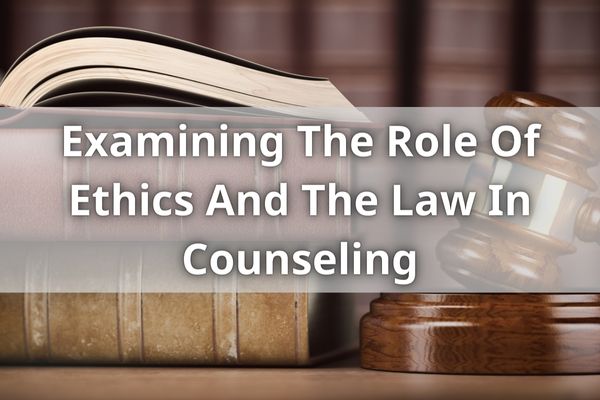
Gaining an understanding of the ethical and legal implications of counseling is essential for providing effective services to your students. You must have thorough understanding of the American School Counselor Association’s Ethical Standards, which are drawn from state and federal regulations, in order to practice as a school counselor.
It’s crucial that you keep up with any amendments to laws or regulations that can have an impact on your line of work. Having a Masters Degree in counseling or other related field is one way to ensure you understand the legal parameters around your work. Participating in educational programs offered by professional organizations such as the American School Counselor Association can also help counselors stay abreast of new developments and requirements within their profession.
It is vital for counselors to have an awareness of their own values while remaining respectful to those held by others. Doing so requires balancing individual ethics with professional standards so that all parties involved receive appropriate care and guidance without bias or prejudice.
This includes understanding how issues such as confidentiality, informed consent, dual relationships, and record keeping should be handled when engaging with students or community members. By adhering to these standards, counselors can provide quality services without any unintended consequences due to lack of knowledge regarding ethical guidelines.
Counselors should strive not only for competence but also for continuous learning throughout their careers. Taking advantage of continuing education opportunities will help ensure they remain aware of the ever-changing landscape within their profession as well as any potential impacts on their students’ wellbeing and success in school and beyond.
With this knowledge in hand, school counselors are then equipped with the skills needed to advocate effectively for youth in various contexts including helping them navigate academic demands or access resources outside of school settings.
The Role Of School Counselors In Student Success
With the right knowledge and skills, school counselors are instrumental in helping students succeed both inside and outside the classroom. A school counseling program, counselor education program, or a school counselor certification program prepares individuals to support student success through various strategies.
These strategies include:
- Providing individual and group counseling sessions that focus on topics such as academic achievement, career exploration, or social/emotional development.
- Developing relationships and collaborations with educators, administrators, parents/caregivers, and other professionals within the community to better serve the needs of students holistically.
- Establishing an understanding of state laws related to confidentiality as well as ethical guidelines for working with children and families in a professional setting.
- Developing evidence-based practices in order to make informed decisions about their interventions and ensure they have obtained an education degree that meets state regulations for licensure eligibility.
Ultimately, it is important for a school counselor to have comprehensive training in order to be effective in promoting student success. Therefore, building relationships and establishing rapport with clients is essential for successful interventions.
Building Relationships And Establishing Rapport With Clients
As an educator in a school counselor preparation program, it’s important to understand the role that building relationships and establishing rapport plays in student success.
Establishing trust and mutual respect with students is essential for a successful counseling experience. Programs must equip aspiring counselors with the skills needed to create meaningful connections with clients so that they may confidently approach individual and group counseling situations.
When working with individual clients, a key factor in creating effective working relationships is establishing trust between patient and counselor. Aspiring school counselors can use effective communication strategies, such as active listening, to build positive rapport with their students. Through this practice, counselors can foster open dialogue between themselves and their students while helping them feel heard and understood. Students are then able to engage more fully in the counseling process which allows for better outcomes within sessions.
In addition to quality communication strategies, understanding the impact of cultural influences on client interactions is also essential for developing successful professional relationships. Each individual brings their own unique experiences into the room that shapes how they interact with others; thus, it’s important for professionals to be aware of these differences when engaging with their students.
School counselor preparation programs should provide aspiring educators opportunities to learn about various cultures so they can better relate to individuals from different backgrounds who come into their office seeking assistance or guidance during times of need.
Understanding The Dynamics Of Group Counseling
It’s crucial for educators to comprehend the mechanics of this sort of therapy since working in a group environment may be a powerful tool to assist students acquire understanding of their own habits and relationships.
In order to prepare education faculty for their role as school counselors, there must be enough knowledge and skills developed related to both group and individual counseling. This includes having an understanding of the various dispositions that impact group dynamics such as trust, respect, collaboration, problem-solving, decision-making, adaptive communication styles and behaviors. In order to handle possible concerns as soon as they develop in a group context, educators must also be able to recognize them.
School counselors should have the abilities required to help kids with personal, social, and academic issues in addition to comprehending the dynamics of group counseling. This might include helping students develop strategies for dealing with stress or anxiety or providing guidance on college applications or career paths.
School counselors should also look out for signs of mental health issues amongst their clients so that they can refer them out for additional support if needed. Furthermore, by being aware of current trends in research on adolescent development and mental health topics, school counselors can ensure they are providing up-to-date advice for their clients.
School counselors play an integral role in supporting student success both inside and outside the classroom environment. They must possess strong interpersonal skills as well as a comprehensive understanding of developmental psychology in order to effectively assist students with navigating difficult life transitions while helping them reach their full potential.
By equipping education faculty with these knowledge and skills related to group counseling dynamics as well as personal development issues facing today’s youth population, they will be better able to serve their student clients moving forward. To assist students with personal social and academic problems is another essential component required from school counselor preparation programs.
Assisting Students With Personal, Social, And Academic Problems
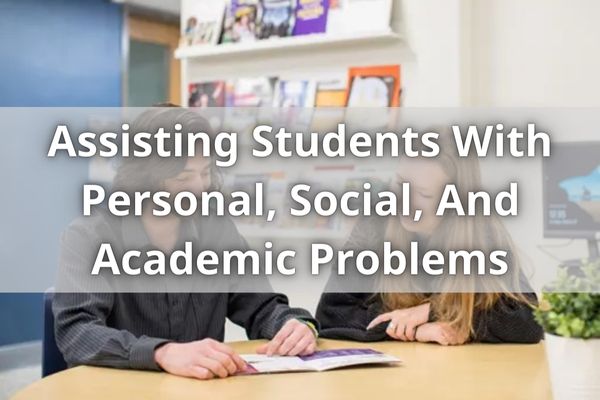
Helping students navigate life’s transitions while reaching their full potential requires a strong understanding of developmental psychology and interpersonal skills. I’ve learnt the value of being able to recognize and cater to kids’ needs as part of a graduate school counselor education program.
It’s important to comprehend how personal, social, and academic issues might affect a person’s capacity to learn and develop if educators are to provide effective assistance for their pupils. It’s also critical to be aware of the societal hurdles that prevent certain adolescents from receiving the mentoring they require in order to attain their greatest potential.
I’m passionate about creating an environment where everyone feels welcomed and accepted without judgement or stigma surrounding any issue they may be facing. I believe that developing positive relationships with others is essential in any successful counseling venture. Therefore, I strive to create an atmosphere where individuals feel comfortable enough to share their concerns and seek help from me as a school counselor.
In order for counseling sessions to be beneficial for both the student and myself, I must remain flexible in my approach while making sure I provide accurate information applicable to each situation presented before me. For this reason, I continuously work towards expanding my knowledge base by taking additional courses related to youth development, allowing me the opportunity to stay up-to-date with current trends in counseling practices.
Moving forward, incorporating technology into counseling will be no exception as more students are using online platforms as helpful tools during their time at school.
Incorporating Technology In Counseling
You can make counseling sessions more effective by incorporating technology into the process! Technology can be used to enhance career development for students, as well as help school personnel stay connected with the school community. Utilizing technology in this way can also improve communication between counselors and their clientele.
A master of education in educational school counseling is a great way to gain an understanding of how to use technology effectively in this field. Counselors need to be versed on the available technologies that can help them become better communicators with their clients. This includes using social media, text messaging, email, video conferencing, and other web-based solutions.
These tools are very beneficial for providing feedback and guidance outside of traditional face-to-face meetings. By using these tools regularly, counselors will be able to develop meaningful relationships with their clients that extend beyond just one session.
Using technology allows counselors to provide support services remotely while still maintaining a professional relationship with their clients. It also offers the opportunity for counselors to connect with various professionals across different disciplines that may offer additional resources or advice for certain cases.
Incorporating technology into counseling sessions allows counselors to reach out beyond what is traditionally available in order to provide comprehensive care for each student they serve. Developing professionalism and leadership in the field requires being able to evolve with changing times and technological advances; incorporating these advancements into daily practice is essential for staying competitive and up-to-date within the profession.
Developing Professionalism And Leadership In The Field

By staying abreast of the latest trends in technology and utilizing them to improve your counseling skills, you can demonstrate a level of professionalism and leadership that sets you apart from other counselors.
As a school counselor, it’s important to stay educated about the changing trends in professional development and special education requirements. Staying up-to-date on American Counseling Association (ACA) standards and regulations helps counselors provide effective services for students within their school districts. Furthermore, being knowledgeable about advances in educational agencies or working with school psychologists can create an atmosphere of trust between yourself and other professionals in the field.
Leadership plays an integral role when it comes to developing professionalism as a school counselor. Taking initiative – whether through leading student groups or collaborating with others – reflects positively on your talents as a counselor. Additionally, attending conferences or workshops provides opportunities for growth and knowledge exchange which can help further your career trajectory.
Being able to leverage this experience into tangible results for students shows that you’re capable of taking ownership over projects while also having an understanding of how these changes affect those around you.
Having good relationships with colleagues is another way to build credibility as a leader among other professionals in the field. Developing positive working relationships makes it easier to collaborate on innovative ideas which allow for more efficient execution at all levels within the organization, ultimately resulting in better outcomes for everyone involved.
Additionally, being open-minded towards different perspectives allows one to be flexible enough to accommodate any challenges that may arise during implementation of new initiatives or programs within their organization.
Conclusion
Overall, school counselor preparation programs are essential to becoming an effective counselor. They help me master the skills and knowledge needed to provide the best possible care for students.
Through these programs, I’m able to gain a better understanding of counseling theories, ethics, law, group dynamics, and how technology can be used in counseling. With this education, I’m confident that I can become a successful school counselor who’s able to assist students with their personal, social and academic needs while maintaining professionalism and leadership.

